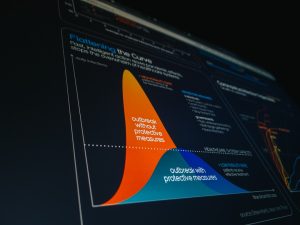
In recent years, the tech industry has evolved at lightning speed, becoming more inclusive and performance-driven. In 2025, many career paths in tech no longer demand a traditional four-year degree. Skill, passion, and hands-on experience often outweigh formal education, opening new doors for individuals ready to self-learn, pivot into tech, or start fresh. Whether you’re making a mid-life career change or exploring options after high school, you’ll find the tech field brimming with opportunities that embrace non-traditional paths.
Below are some of the most promising tech jobs in 2025 that you can land without needing a university degree:
1. Web Developer
Web developers are in high demand as every business today needs an online presence. You can specialize in front-end development (focusing on the look and feel of websites) or back-end development (handling the server-side logic and databases).
- Essential Skills: HTML, CSS, JavaScript, React, Node.js
- How to Start: Online coding bootcamps, YouTube tutorials, and platforms like freeCodeCamp or Codecademy offer comprehensive courses.

2. Data Analyst
Data analysts translate raw data into actionable insights. Retail, healthcare, and financial sectors all rely heavily on data analytics to guide important decisions.
- Essential Skills: Excel, SQL, Python, Tableau, Power BI
- How to Start: Learn the basics of data handling through free or low-cost courses. Project-based portfolios are key to landing entry-level roles.
3. Technical Support Specialist
These professionals play a vital role in ensuring smooth operation across IT systems. From solving user issues to maintaining systems, support specialists act as the frontline IT staff.
- Essential Skills: Troubleshooting, knowledge of Windows/Linux OS, networking basics
- How to Start: Entry-level roles often require only a high school diploma and certifications such as CompTIA A+.
4. UI/UX Designer
UI (User Interface) and UX (User Experience) designers are key in crafting intuitive and engaging digital experiences. Strong visual thinking and empathy for users are the defining traits of this role.
- Essential Skills: Figma, Adobe XD, design principles, prototyping
- How to Start: Build a portfolio of mock projects. Platforms like Behance and Dribbble are great for showcasing work and getting inspired.

5. Cybersecurity Analyst
As cyber threats grow, organizations are investing more in cybersecurity. Analysts monitor systems, investigate security breaches, and help organizations prepare for future attacks.
- Essential Skills: Networking theory, firewall management, risk analysis, familiarity with tools like Wireshark and Nessus
- How to Start: Certifications such as CompTIA Security+ provide a great starting point. Hands-on labs and simulation tools can fast-track learning.
6. Digital Marketing Specialist
Digital marketers blend creativity with technical skills to drive traffic, engage audiences, and grow brands. From SEO to content strategy, it’s a multifaceted role.
- Essential Skills: Google Ads, SEO, email marketing, analytics tools
- How to Start: Create your own blog or digital project to test knowledge. Google offers free certifications in marketing that carry real weight in the industry.
7. Cloud Support Associate
Companies are moving to the cloud, creating a surge in demand for cloud professionals. Cloud support associates help manage cloud systems and troubleshoot platform issues.
- Essential Skills: AWS, Azure, Linux, basic networking
- How to Start: Begin with cloud certifications like AWS Certified Cloud Practitioner. Online labs like Qwiklabs offer hands-on practice.

The Rise of Alternative Credentials
In 2025, it’s not unusual for hiring managers to consider certifications, bootcamps, and online learning portfolios as solid indicators of technical ability. Here are some popular alternatives:
- Coding Bootcamps: General Assembly, Le Wagon, and Ironhack are highly rated paths into web development and data science.
- MOOCs: Coursera, edX, and Udacity offer university-level courses from top institutions.
- Certifications: Google Career Certificates, CompTIA, and AWS offer entry points into high-demand fields.
Conclusion
While a degree can still offer advantages, the tech world in 2025 emphasizes skills, problem-solving, and initiative over academic credentials. With a little motivation and the right resources, it’s entirely possible to build a successful, rewarding career in tech—no diploma necessary.
Remember, the journey might require dedication, continual learning, and building a strong portfolio, but the opportunities for non-degree tech professionals are more vibrant and accessible than ever before.






